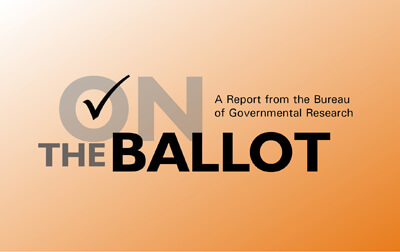
Mayor LaToya Cantrell threatens layoffs if voters say no to proposed tax changes
By Jeff Adelson
Source: The Times-Picayune | The New Orleans Advocate
December 3, 2020
New Orleans Mayor LaToya Cantrell threatened to lay off city employees unless voters extend three property taxes Saturday.
If the millages are not renewed, she said during a virtual town hall meeting Thursday evening, City Hall would “immediately have to move from furloughs to layoffs, and it’s not a threat at all; it’s a harsh reality.”
Nothing about the outcome of the tax referendum will change City Hall’s bottom line next year, however, because the current taxes don’t expire until the end of 2021. The taxes generate less than 4% of the city’s $633 million budget.
The ballot propositions would reconfigure five existing property taxes into four new ones, keeping tax rates the same, a total of 5.82 mills. They would increase the amount of money going to economic development, affordable housing and infrastructure at the expense of the New Orleans Public Library, which would take a 40% hit to its annual budget.
Cantrell said that because her administration assumed the ballot measures would pass, it built that money into the 2021 budget. As a result, Cantrell said, if the proposals are voted down it could force City Hall to expand the current furloughs for city workers into potential layoffs.
While the existing millages are dedicated to specific purposes, it’s not clear whether City Hall would be able to reshuffle other money to make up the difference.
Courtney Kearney, a board member of Friends of the Library and opponent of the propositions, described Cantrell’s comments as “bullying.”
“It’s not a response to the failing of these proposition. If these particularly worded propositions fail, the result is not a loss of jobs,” Kearney said. “She has decided that she will fire people. It’s punitive damage that isn’t directly related to the propositions.”
The millage propositions represent a complicated tax swap that has drawn significant opposition because of cuts to the library.
Proposition 1 would combine two infrastructure taxes and let them be used for a maintenance fund for streets, buildings and other resources. Proposition 3 would created a dedicated fund for economic development, replacing a tax for that purpose that is currently unfunded, and provide additional money for affordable housing.
Proposition 2 would cut a millage now dedicated to the library. That proposition would split the library tax between the library and a program that provides scholarships for seats in preschools for low-income students. The budget for next year would use $1.5 million of the tax for that program, replacing about half the general fund money that now goes toward those scholarships.
That would leave the library with overall revenue of about $12 million, compared to the $20 million it would receive otherwise.
Cantrell’s comments came amid a last-minute push by the administration and early childhood advocates to boost interest in voting. That effort included a flyer from a recently formed political action committee, which falsely asserted that the Bureau of Governmental Research, a non-partisan think tank, supports the propositions.
BGR last week urged residents to vote down the millage proposals, saying it would give the administration a chance to come back with a better plan. The pro-tax flyer, delivered to some residents on Thursday, took a quote supporting early childhood education as a noble goal out of context to imply the organization had given the full proposal its stamp of approval.
Thursday night, BGR described the flyer as mischaracterization of its position. “While we recognize the merits of investing in early childhood education, BGR’s clear position is against all three propositions,” said Amy Glovinsky, president and CEO. “As a package, they do not give voters adequate information on how the city will spend taxes that would run for 20 years.”
Fair Use Notice
This site occasionally reprints copyrighted material, the use of which has not always been specifically authorized by the copyright owner. We make such material available in our efforts to advance understanding of issues and to highlight the accomplishments of our affiliates. We believe this constitutes a “fair use” of any such copyrighted material as provided for in section 107 of the US Copyright Law. In accordance with Title 17 U.S.C. Section 107, the material on this site is available without profit. For more information go to: US CODE: Title 17,107. Limitations on exclusive rights: Fair use. If you wish to use copyrighted material from this site for purposes of your own that go beyond “fair use,” you must obtain permission from the copyright owner.
